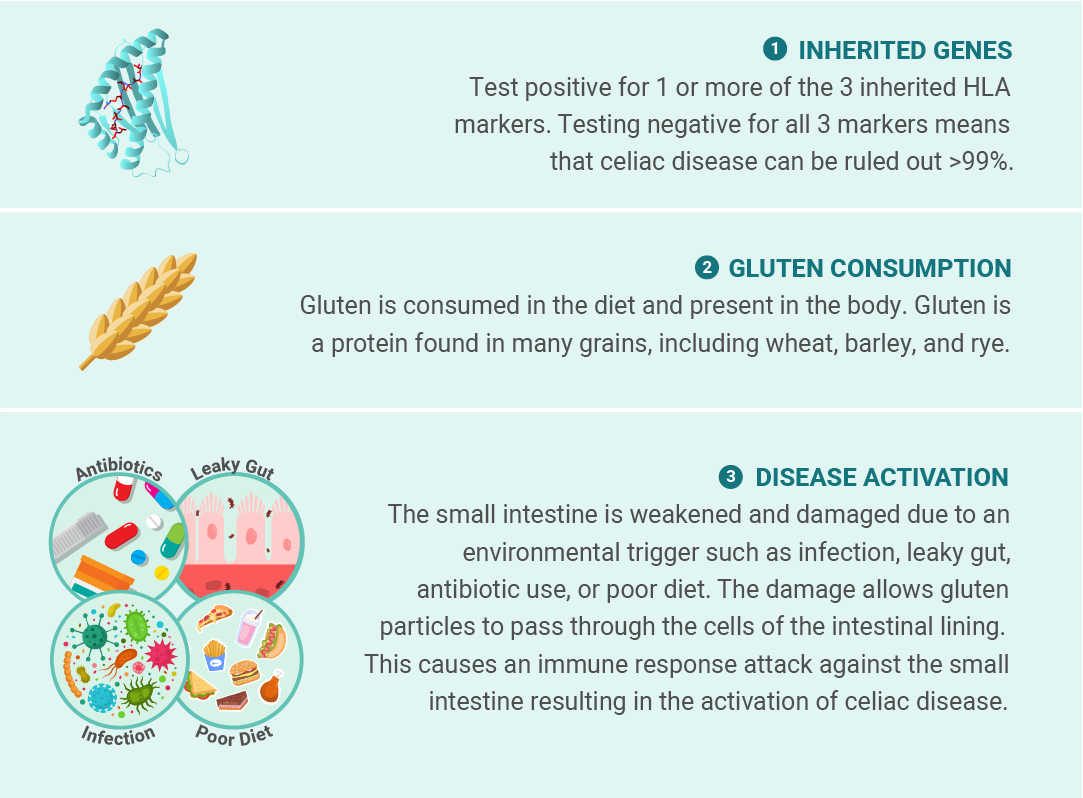Celiac disease is an autoimmune disease in which the body’s immune system attacks the small intestine when gluten is consumed. The damaged small intestine loses its ability to properly absorb nutrients. Celiac disease can develop at any age after gluten consumption begins. If left untreated, celiac disease can lead to serious health complications including: anemia, autoimmune disorders, coronary artery disease, epilepsy, intestinal cancers, migraines, miscarriage, osteoporosis, rash (dermatitis herpetiformis), and short stature. Currently, a lifelong adherence to a strict gluten-free diet is the only treatment for this condition. In order to develop this disease, three things are needed: (1) your celiac HLA genes are "positive" for celiac disease risk (2) you eat gluten-containing foods like wheat or barley (3) the disease is activated by an environmental trigger
Celiac disease is an autoimmune disease in which the body’s immune system attacks the small intestine when gluten is consumed. The damaged small intestine loses its ability to properly absorb nutrients. Celiac disease can develop at any age after gluten consumption begins. If left untreated, celiac disease can lead to serious health complications including: anemia, autoimmune disorders, coronary artery disease, epilepsy, intestinal cancers, migraines, miscarriage, osteoporosis, rash (dermatitis herpetiformis), and short stature. Currently, a lifelong adherence to a strict gluten-free diet is the only treatment for this condition. In order to develop this disease, three things are needed: (1) your celiac HLA genes are "positive" for celiac disease risk (2) you eat gluten-containing foods like wheat or barley (3) the disease is activated by an environmental trigger










